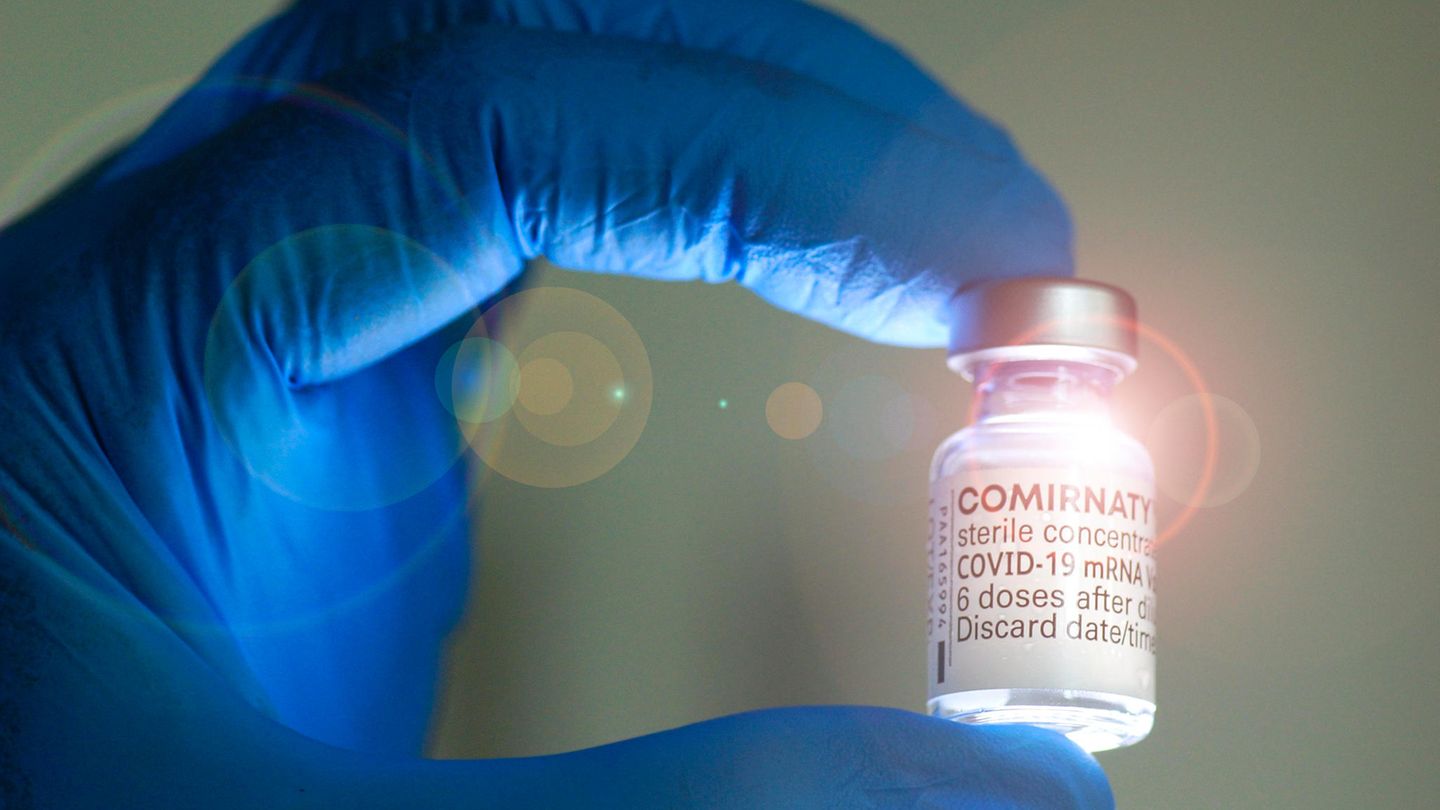The stomach cramps or the bleeding is more severe: women report on social media about menstrual cramps after the corona vaccination. Is that a previously unknown side effect? The question is not that easy to answer.
Kate Clancy is one of the first to report on her observation: Shortly after the corona vaccination, the anthropologist from the USA struggled with a particularly heavy menstrual period. She’s bleeding as badly as if she were back in her twenties, wrote Clancy on Twitter in February. She said she had to change extra-thick pads a few times a day, and it was already the third day of her period. Usually at this point she would come with one or two normal, albeit absorbent, sanitary towels for the day.
More women speak up below the post. Some write that they did not notice any changes after vaccination. Others report that periods started earlier than usual, were heavier, or were associated with cramps. Clancy, who works as a scientist at the University of Illinois, is interested in research: In April she started to find out whether even more people are affected by menstrual symptoms. She has already received tens of thousands of replies. Now the scientist wants to
Connection or cause and effect?
The reports of menstrual complaints after vaccination make you sit up and take notice. However, they are not proof that the vaccination is the cause of the symptoms. There are basically three options:
1. There is a temporal connection
It would be conceivable that the menstrual symptoms would also have occurred independently of the vaccination – i.e. there is a temporal connection. This scenario is supported by the fact that the cycle and the menstrual bleeding are not always strictly clocked, but are subject to certain fluctuations. If the number of vaccinated people with menstrual bleeding increases, so does the number of people who report menstrual cycle symptoms in connection with the vaccination.
The situation is similar with many reports of illnesses related to vaccinations. Vaccinated people will inevitably develop heart attacks and strokes or die – but this does not automatically mean that the vaccination caused them.
2. There is a causal relationship (cause-effect)
But it is also conceivable that the vaccination can actually affect the cycle and menstrual bleeding in the short term. In this context, researchers speak of cause and effect. Such a connection is not easy to prove. A first clue is usually a statistical accumulation. If, for example, women who are vaccinated report menstrual cycle symptoms more frequently than a control group, this could be a corresponding indication. (So far, however, there is no indication of such an accumulation in official statistics, see below.)
On the other hand, descriptions of individual cases cannot prove a cause-effect relationship, but they can serve as a point of reference for further investigations. Even descriptions by several people, such as the one in the post by Kate Clancy, are not yet evidence of such a connection. It is possible that women struggling with menstrual cycle symptoms noticed the scientist’s Twitter post more than average and shared their experiences. Women who had no complaints whatsoever may have paid less attention to the post. In such a case, researchers speak of a statistical bias.
3. There is an indirect connection
It is also possible that the vaccination could indirectly influence menstruation. In this scenario, it would not be the vaccination itself that provides for menstrual cramps, but the accompanying circumstances, which for some people are associated with stress, anxiety and insecurity, which in turn could have an impact on the cycle.
According to Christian Albring, chairman of the professional association of gynecologists, such a scenario is not unlikely. The hormonal balance can quickly become unbalanced as a result of stress, which could, for example, promote premature bleeding. “Anything that affects the brain can lead to bleeding,” says Albring. “And so it is nothing special for gynecologists that women react to stress with bleeding.” In his patients, however, the gynecologist has not yet been able to observe any accumulation of cycle irregularities after vaccinations.
Registration studies: No evidence of menstrual cycle symptoms
No corresponding accumulation was observed in the approval studies either. However, it is unclear whether women did not associate possible menstrual symptoms with the vaccination and therefore did not report them, or whether in fact no symptoms occurred. This lists pain at the injection site, exhaustion and headache as the most common vaccine reactions for the vaccines from Biontech and Moderna. After the second dose of vaccination, 16 (Biontech) and 15.5 percent (Moderna) of the test subjects reported a fever.
In Germany, the Paul Ehrlich Institute (PEI) continuously collects data on possible adverse effects of vaccinations. Special attention is required whenever reports of suspected vaccinations occur more frequently than would normally be expected. However, the PEI currently sees no reason for this with regard to menstrual cycle complaints, as the institute explained: “We are currently seeing a reporting rate of 0.4 to 2.6 cases per million vaccinations, which should be in the normal range without vaccination.” Nonetheless, the issue will continue to be observed.
A comprehensive database is important for the statistics of the PEI. Doctors as well as private individuals can contribute to this. If there is a suspicion that an undesirable effect has occurred after the vaccination, this can. Women who have had menstrual cycle problems after vaccination should make use of this option.
Conclusion
At this point in time, it is unclear whether vaccinations against the coronavirus can lead to menstrual cramps. A noticeable accumulation is not described, at least in official statistics and data. Women who have developed symptoms after vaccination should report them in any case so that a possible connection can be better investigated. But one thing is certain: it is known that the period symptoms reported so far are only temporary and will go away on their own.
It is also known that some women can develop menstrual cycle problems for a short time after viral infections or febrile infections. However, the reasons for this are not fully understood here either.
In any case, women do not have to worry about their fertility after vaccination. There is no evidence for the often-voiced claim that the corona vaccination could make women sterile. “No, the vaccination has no effect on the fertility of women”, who is also a member of the Standing Committee on Vaccination (Stiko). “The available Covid-19 vaccines have been tested on thousands of adults, including many women of childbearing age and women who want to have children.” Rather, the vaccination is expressly recommended for women who want to have children.
Regardless of a previous vaccination, women should always have a gynecologist clarify any new or worsening menstrual cycle symptoms, as these can indicate underlying diseases.




